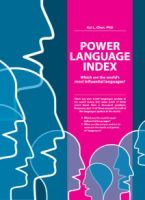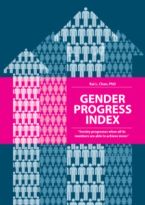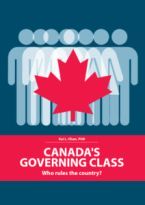
The six workforce challenges you must tackle now
The six workforce challenges you must tackle now
Author: Mark Townsend
Something is stirring in the GCC. The flatlining oil price and the newfound maturity of many local economies are forcing organisations to think afresh about their business models, and to call time on the era of short-term, expat-reliant workforces in search of something more sustainable. But what does that mean for HR professionals and business leaders planning for the future? People Management speaks to a range of experts to build a comprehensive picture of the challenges organisations face in a reset GCC economy – and the innovative ways they are finding to flourish.
1 Find and develop talented nationals
The GCC workforce faces profound challenges if it is to match the productivity levels of G20 economies: local businesses must be at the forefront of a drive to work both smarter and harder. But if their endeavours are to result in the widest possible and most sustainable prosperity, they must harness local talent at a time when the Emirates, Saudi Arabia and others are desperately trying to rebalance their economies away from oil and an over-reliance on the public sector.
Dr Kai Chan, distinguished fellow at INSEAD’s Innovation and Policy Initiative in Abu Dhabi, says the current experience of the UAE offers a wider set of lessons for the region’s policymakers. “Around 95 per cent of Emiratis in the labour force work for a government entity, whereas less than 1 per cent of private sector employees are locals,” he says. There is an entrenched antipathy by locals towards the private sector, and major hurdles must be overcome if these figures are to change. The background isn’t hard to understand: generally, government jobs pay more, have shorter working hours and the national pension scheme for UAE nationals is non-transferable to the private sector.
Chan says a major challenge is creating skills among Emiratis that are attractive to the private sector. Few currently graduate with degrees in STEM subjects. He suggests governments must align their policies with tactical goals. The UAE’s ‘National Agenda (Vision 2021)’ sets clear aspirations for more sustainable Emiratisation, and there is every indication the government is solidly behind the plan. But Chan highlights the aims to increase the proportion of Emiratis in the private sector to 6 per cent, even though they only account for 11 per cent of the population and historically have lower labour force participation rates.
The way forward, says Chan, is to continue blending the immediate need to increase participation of nationals in the private sector with the longer-term objective of relying less on expatriate talent. There have been tentative steps among private sector firms to support this objective, such as the recent HSBC Leadership Programme, which identified high-potential Emiratis from organisations including Etisalat, Etihad and the Department of Finance, and offered them a course in leadership skills and innovation.
Indeed, the finance sector – where participation rates stand at more than 30 per cent – is a shining example of how greater nationalisation can work hand in hand with economic prosperity. A slowdown in public sector recruitment, driven by plummeting oil prices, may act as a lubricant for such ideas to become more widespread. But members of the UAE’s Federal National Council have become increasingly vocal in demanding quotas for the integration of Emiratis into the private sector workforce, and Chan sees them as inevitable: “Ideally, the government sets a target for a given industry and firms are either incentivised or obligated to have a certain number of nationals on payroll.”
2 Make workplace learning really work
Gulf governments have invested substantially in educating today’s cohort of graduates. But when they reach the workplace, are they getting the learning opportunities they need to flourish? Many L&D experts suggest the quality and frequency of workplace learning in the Middle East lags behind Asia or Europe, and economic uncertainty often means training budgets are among the first to take a battering.
But Adam Kingl, executive director of learning solutions, executive education at London Business School, says organisations realise things need to change – if only because the status quo is simply unsustainable. “Organisations across the GCC are telling us they need to undergo fundamental changes,” he says. “It might be due to increased nationalisation and they want a joined-up leadership culture, or they might want to create a common vocabulary, toolkits and combined skills.” Many companies, he adds, are considering new business ventures as they prepare for a downturn precipitated by the fall in oil prices.
Surviving challenging times demands leadership, strong strategic objectives and the ability to execute, Kingl says. These areas can only be addressed by building a culture of continuous learning, which means the perception of learning interventions must change if there is to be a lasting impression on an organisation. “Too often, organisations evaluate success or failure based on the level of response of the participants,” says Kingl. “More often, it’s about how much fun the participant has had. But learning can be a wake-up call – it might not always be fun.”
Organisations that are still at a relatively nascent stage of L&D development have the opportunity to bypass the attitudes of their peers and leap straight into the fast-evolving field of social learning. This abandons the didactic model of trainer-led learning and encourages employees to learn from each other. It connects them through enterprise social networks to talk about what they’re learning, and uses videos, ‘lunch and learn’ workplace talks and internal wikis to capture knowledge, supplemented by access to external experts and industry peers through social media. As Kingl puts it: “A single download of content isn’t effective… a learning journey is built across years.” Companies such as Oman Oil and UAE-based Aldar Properties have both used learning interventions to encourage cross-functional collaboration, he adds.
There is also a place for structured internships, an area where GCC organisations have traditionally been found lacking. Companies are beginning to see the value in offering young employees a concerted learning programme, which broadens their exposure to different areas of the business and ensures they have the support they require to develop. “We are seeing a trend, particularly in the technology sector, for which internships can create a strong pipeline of talent,” says Ali Matar, head of talent solutions at LinkedIn MENA. “Another approach is offering UAE nationals structured and quality internships to strengthen their competitive positioning in the job market. Some combine these, like the SAP Academy in Dubai, which trains both UAE nationals and other interns on ERP solutions.”
3 Understand the importance of good HR
As companies vie for talent, and CEOs become increasingly aware of the value of people to their future prosperity – not to mention the detrimental cost of bad hires or rotten cultures – HR is becoming more mature, and more involved in business strategy. Alexandros Kopitsas, HR director at Johnson & Johnson in Dubai, says this is an inevitable byproduct of a wider business maturity: “Companies are realising the importance of better quality people management, owing to the fact employees have choices and are no longer loyal to one company.” Kopitsas says the main reason for leaving an organisation is usually poor management skills or poor leadership. That has translated into enhanced investment in leadership development through a combination of assessments, training and coaching. In-house coaching has surged as companies try to ensure managers lead and involve their teams more effectively. Better talent management, succession planning and internal communication are next on the agenda, says Kopitsas.
But a drive towards more effective HR must be matched by a similar appetite for professional standards, says Alan Ovens, international director for the CIPD. “There is an increasing demand from HR leaders, HR practitioners and business leaders to become a licensed profession,” he says. “Recent market research in Asia and the Middle East showed more than 70 per cent of HR leaders think it’s important for employees in HR and L&D to hold professional membership, and they believe HR should become a licensed profession. Yet it is estimated that less than 20 per cent of HR practitioners internationally have an HR qualification. Is this OK? If we asked the finance director this question of finance, the answer would be no.” Professional designation and membership are “incredibly important,” adds Ovens. “For the individual, it is recognition that they have achieved a level of professional standing. For the organisation, it is a benchmark and reassurance that HR has attained a level of professional recognition.”
HR teams will, over time, need to develop a broader combination of skills to reflect the diversity of the company, says Nairouz Bader, Middle East chair of the Association of Executive Search Consultants, who helps place HR professionals in senior roles across the region. “HR professionals need to seek wider business responsibilities and roles, especially commercial ones that enable them to prepare for more strategic roles [later].”
Standards have risen, but there is some way to go. Bader is hopeful the recent anti-discrimination law passed in the UAE will force companies to drive out poor practices. But she warns: “Without HR best practice, corporate growth, sustainability and the whole economy will suffer.”
4 Make wellbeing a corporate priority
“One of the best assets employers have on their balance sheet is their employees,” says Markus Giebel, the CEO of Eternity Medicine, a corporate healthcare provider in Dubai. “If you have healthy, productive and happy employees, you have a healthy balance sheet. The region is suffering critical health issues, and companies need to be the main driver promoting health.”
For too many organisations, wellbeing remains a woolly concept. Kopitsas says this is partly due to corporate cultures that encourage hard work and a focus on the job, rather than a work-life balance. As Bader puts it: “GCC countries do not offer citizenship, and resident talent looks at working in the region as a temporary stage.” As a consequence, there is insufficient emphasis on ensuring employees are both physically and mentally fit for the job, and that problems – whether underlying illness or stress-related conditions – are not properly diagnosed, let alone actively incentivising employees to maintain their personal health.
This may change as a move to mandate comprehensive insurance for all employees gathers pace, particularly in the UAE. Active management of personal wellbeing decreases insurance costs, and encourages organisational loyalty. “HR departments in the region are not given much leeway to be as creative and innovative as they would like around wellbeing,” says Bader. “But this is a growing region, and HR practices in this area will grow with it.”
DHL Express is one company taking the lead. Its Dubai office includes a fitness centre, a café offering healthy food, health check-ups and sports activities. Other businesses are beginning to introduce enhanced healthcare benefits. As nationalisation programmes emphasise the importance of long-term planning over opportunism, the era of seeing people as a natural resource rather than an investment looks over. Will employers grasp the wellbeing challenge?
5 Get to grips with a post-oil economy
An overarching narrative, particularly from outside the GCC, is that oil remains the engine of the economy, and that fluctuations in price are a death knell for local businesses. But dig deeper into the figures and something more intriguing emerges. The contribution of the non-oil sector to the national economy of the UAE, for example, reached 68 per cent in 2015, and there is every reason to believe a government-mandated target of 80 per cent by 2021 is far from unrealistic. The service industry already accounts for more than 70 per cent of total GDP and is buoyant: the number of hotels in the UAE grew by almost eight per cent in the first quarter of 2015, and retail profitability is reaching record levels.
Such returns cannot be accounted for by the shrinking of national income alone: there is a determined diversification in place across both public and private sectors. There is also a very obvious reason to increase the pace of change even further. The era of $100 per barrel already seems a distant memory and, with several GCC economies facing deficits, the pressure is on. Chan says lower oil prices are already having an economic impact that may ultimately affect competitiveness: “Low oil prices hamper the ability of governments to hire foreign experts. Given a tighter budget, governments are more likely to skimp on hiring foreigners rather than absorb fewer nationals. So the oil shock is a double whammy – it makes it harder to bring in foreign talent and at the same time makes it difficult for governments to employ locals or push them onto the private market.”
To manage in a period of economic uncertainty, Chan says GCC governments must push through further labour market reforms, before it becomes financially unsustainable to subsidise them. The IMF has already urged governments to roll back subsidies that underpin all Gulf economies. The UAE has taken the lead by recently deregulating fuel prices, but it is not yet clear whether these savings will be used to accelerate labour market reforms. It is almost a cliché to say the GCC is at a crossroads, but reduced hydrocarbon income could offer the impetus it sorely needs.
6 Innovate properly – without trying too hard
The societal convention of not wanting to be seen to lose face – common across Gulf countries – is viewed by many experts as a euphemism for not wanting to be seen to fail. Yet ‘failure’ in economies such as the US is seen as a positive, and is often cited as an essential route to long-term success. It is this paradox that stifles the ability of organisations across the Gulf to go toe-to-toe with international competitors in terms of innovation. Overcoming such deep-rooted conventions is going to be a challenge, according to Kingl: “It is important within organisations, and especially among leaders, that it is recognised that those first 99 attempts were roots to success, not failure.”
Adversity is a common cultural norm that can hold back innovation just about anywhere, but in the GCC it is going to require a change of mindset. Part of the solution, Kingl says, is separating the idea of saving face from the inevitable and necessary failures that are part of business experimentation and are necessary in order to innovate.
“As an organisation, you cannot just tell people ‘I am incentivising you to be innovative – go forth and be innovative’ – you have to help people to understand what that means,” Kingl says. Businesses should consider separating out entrepreneurial units, particularly when trying to introduce a new product, business model or unit within a larger company. “People then feel they have more freedom to be agile, have their own P&L, their own organisational structure and their own management.”
This is an extension of the ‘Skunkworks’ idea pioneered by aircraft maker Lockheed Martin, in which small teams are hived off to solve business challenges under top-secret conditions. Steve Jobs housed Apple employees working on Mac projects in separate buildings and encouraged them to develop their own culture. Nike develops many of its most celebrated trainers in a lab so secret no outsider has ever visited it.
But innovation isn’t always about brainstorming great ideas, or even coming up with new ones. Incremental innovation (improving by degrees), reverse innovation (taking products back to basics to introduce them to the mass market) or even plain replication can, in their own way, be just as important.
Fast-growing tech businesses such as Spotify have embedded innovation into their culture, not through huge R&D investment, but by reorganising teams to separate hierarchical line management from technical expertise. Management ideas such as the currently-in-vogue ‘holacracy’ (a system populated by small, nimble teams) offer similar aims. And in a gleaming waterfront property in Abu Dhabi stands a very visible testament to the fact the UAE is determined to make innovation part of its own national culture: the UAE Space Agency stands ready to boldly go, even as NASA has said it will remain earthbound for the foreseeable future.
© CIPD Middle East FZ-LLC 2015






